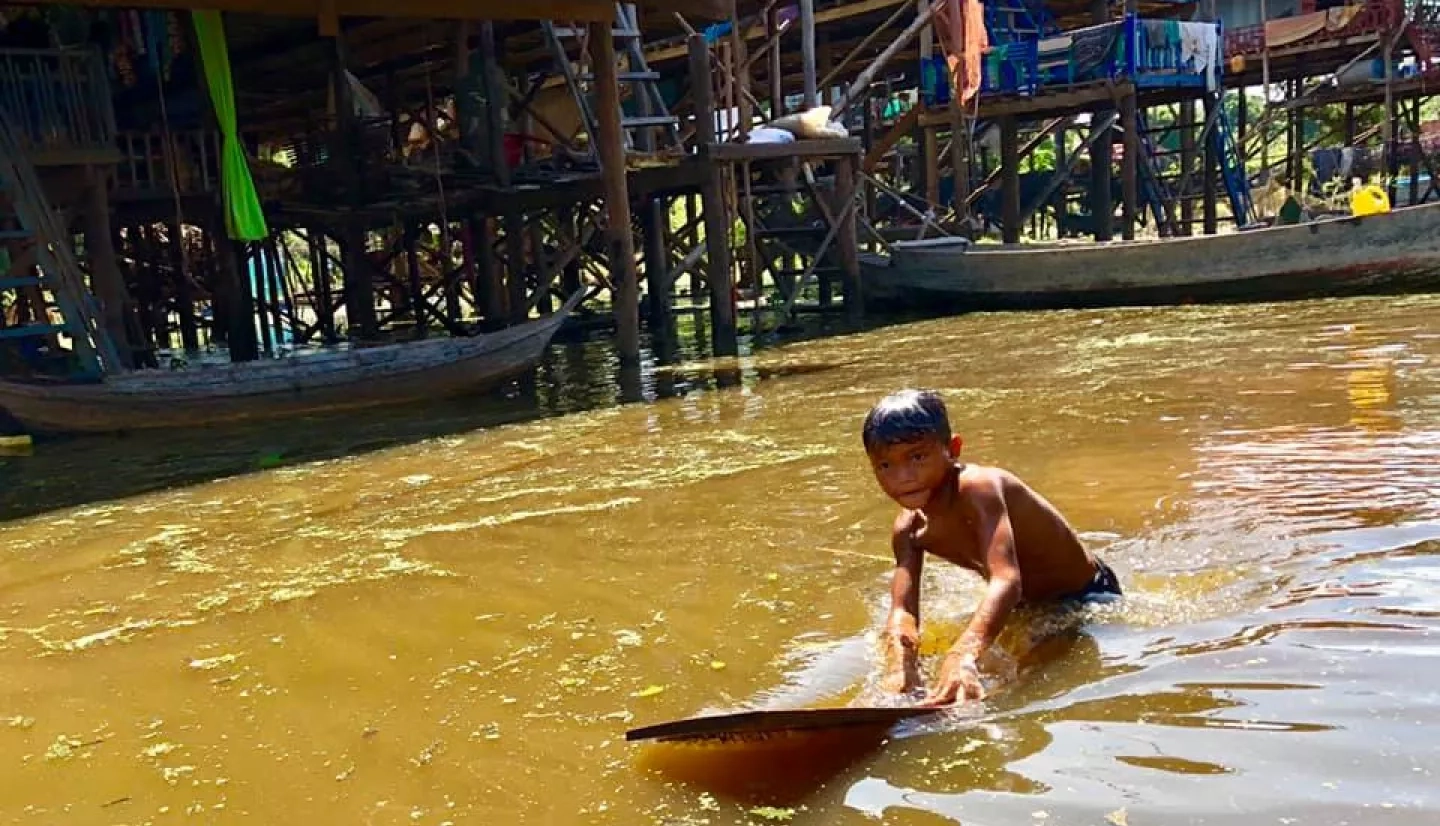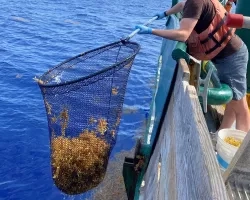Encompassing Earth Data, Community Concerns and Climate Change
NASA Earth science satellites and other remote sensing techniques can fill in information gaps, but scientific data is just one piece of the larger puzzle when it comes to sustainable water resource management.
What's needed, in addition to data, are strategies for information sharing, financing and cooperation among the many varied decision-makers in a watershed. That according to a paper published in the January 17 edition of Nature Scientific Reports.
“We as a scientific community need to take another step translating the science of climate change to assist stakeholders and water managers to achieve sustainable water management,” said lead author Ibrahim N. Mohammed of the Hydrological Sciences Laboratory, at NASA Goddard Space Flight Center.
The Earth's climate is changing, and one of the main impacts we are seeing is on the water cycle. For example, we see an elevated risk of more frequent and intense flooding and droughts, says study co-author and principal investigator John Bolten, also of NASA's Hydrological Sciences Laboratory. Also, the amount of water flowing in individual streams and rivers is changing, and those changes affect water supplies to communities.
To manage this increased risk, a higher degree of coordination is needed around already difficult tasks such as dam management, flood mitigation, and coordination of water releases from reservoirs. The issue is particularly pressing in places that share water and rivers that cross political boundaries. To study these areas, Mohammed, Bolten and their coauthors conducted a case study in the Mekong River Basin, where over 60 million people rely on rivers for their freshwater, food supplies and energy.
“People living in the Mekong rely on it in so many ways," said Mohammed. “From everything from electricity from dams to fresh water, nearly every aspect of their social-economic lives rely on the management of this watershed," he said. "That’s why incorporating all facets of the physical and social aspects of water management is essential to explore tradeoffs," he said, "as well as limits that currently exist in the way this watershed is governed."
To get a complete picture of the Mekong, NASA scientists worked with colleagues at the non-profit group Conservation International via the NASA Global Partnerships Program. The case study includes the river basins of the Se Kong, Se San, and Sre Pok rivers, known as the 3S watershed. This area includes three different countries, Cambodia, Laos and Vietnam. The study considered each country’s ability to plan for and manage future changes in the amount of water flowing in these rivers by incorporating social surveys from local decision makers. These surveys include information on adaptive management, information access, rule enforcement, and financial capacity.
“One of the great things about the partnership is that it allows us to include cutting-edge science in the real world of water resources management," said co-author Derek Vollmer of Conservation International. "Our understanding of the problem at hand is incomplete unless we are also looking at the decision-making context of, in this case, countries in the Lower Mekong region.”
Mohammed added, “In addition to the challenges of coordinating reservoir release rules from multiple governments, climate change makes long-term planning even more difficult.”
There is a general trend of more rain and larger flood peaks due to climate change, he said, and that will likely require not only shifts in how these governments operate dams, but also ways they will manage flooding.
In addition to flooding, there are also pressures on the structural integrity of dams which may need expensive upgrades. The study concludes that a coordinated and enforced management plan between the countries in the 3S River Basin will be needed to manage future floods and remediate their impact.
“This study and its findings attempt to anchor the knowledge uncovered from our NASA partners to the local social reality. With this key step, a more nuanced picture of the unfolding water narrative in this part of the Mekong basin is obtained - against which priorities for action, and investment of resources, can be examined,” said co-author Kashif Shaad of Conservation International.
“Effective water governance is a shared responsibility," added Bolten, "Impacts from changing climate are woven across political boundaries, ecosystems, and industrial, food, and financial systems, and these impacts will require real coordination and hard decisions to protect river systems and the people who depend on them. This is a major step towards understanding the scope of issues and preparing to make more informed decisions.”
The study was made possible by NASA's Global Partnerships Program and its work with the non-profit group Conservation International.




